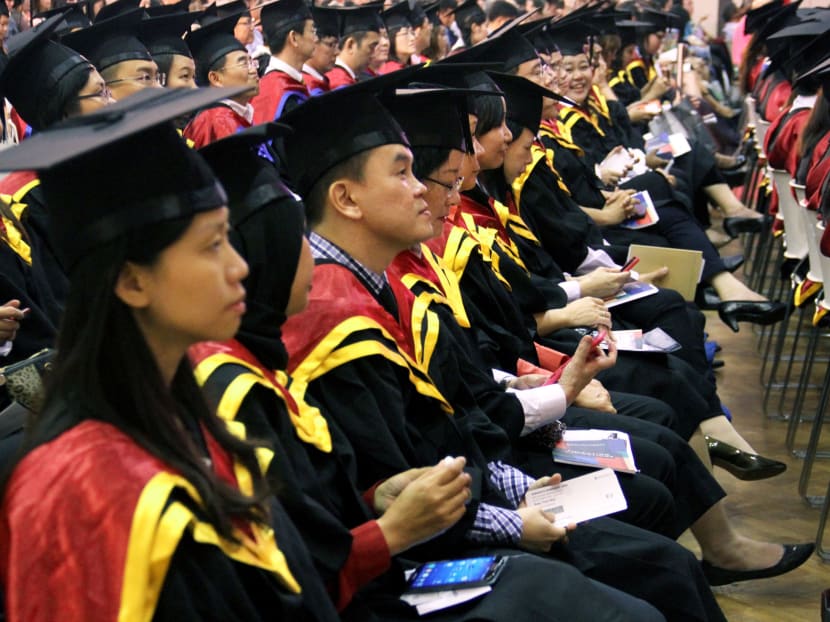S$10m boost for research in innovative teaching, learning at tertiary level
SINGAPORE — With innovative teaching and learning methods viewed as critical to helping students realise their potential, the Ministry of Education (MOE) will be setting up a new S$10-million fund to support research in these areas at the tertiary level.
SINGAPORE — With innovative teaching and learning methods viewed as critical to helping students realise their potential, the Ministry of Education (MOE) will be setting up a new S$10-million fund to support research in these areas at the tertiary level.
Open to researchers in polytechnics, ITEs and universities, the Tertiary Education Research Fund will be available on a competitive basis to encourage these institutes of higher learning to innovate and undertake rigorous research.
“Education innovation is critical to help our people realise their potential — we must strive to find better ways to help people learn,” said Education Minister Heng Swee Keat , who announced the fund yesterday at the launch of the Association of Southeast Asian Institutions of Higher Learning conference, hosted by the Nanyang Technological University (NTU).
“With the introduction of the Tertiary Research Fund, MOE will be promoting innovation and research on teaching and learning across all levels of education — from primary to tertiary,” he added.
As the first of its kind from MOE to target research in these areas at the tertiary level, the Tertiary Education Research Fund will complement the ministry’s existing funding of similar research from pre-school to junior college levels.
Responding to media queries, the MOE said more details about the fund would be made known to eligible applicants by the first half of next year.
While Mr Heng noted that education innovation could be challenging, he said breakthroughs are possible by following practices such as daring to try new approaches or technology and integrating good practices and research findings into effective pedagogy.
Singapore has already been pursuing education innovation in certain areas, such as interactive 3D images of full-body anatomy at the NTU Lee Kong Chian School of Medicine and the National Institute of Education’s project on improving the working-memory capacity of children in Learning Support programmes, said Mr Heng.
“By learning about learning, by trying new ways, by rigorous evaluation and integrating promising approaches into a coherent whole, we can make meaningful education innovation,” he added.
Welcoming the fund’s establishment, the two local universities TODAY spoke to — NTU and the National University of Singapore (NUS) — said it would help scale up their respective initiatives in teaching and learning research.
NUS President Professor Tan Chorh Chuan said the new fund is a timely and important initiative since, currently, there are no dedicated sources of funding for research in these areas at the tertiary level. “It will stimulate and support research to create an evidence base on learning that is specific to our local contexts and which will benefit future generations of Singapore students,” said Prof Tan.
Such research will be also be important in the redesigning of the curriculum and delivery strategies, said Professor Lee Sing Kong, NTU Vice-President of Educational Strategies. One area in need of more research is the use of technological tools, he added.
“We need to understand theoretical underpinning on how these tools can be used to bring about an impactful process of learning. It is research of this nature that can really bring back information that will enable us to redefine how education can be delivered through these tools in higher education,” said Prof Lee.







